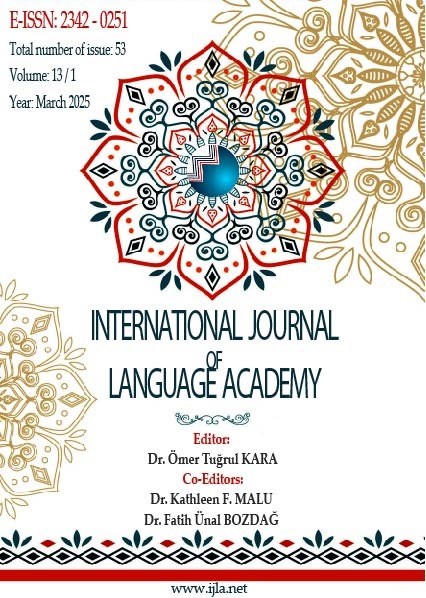Author :
Abstract
Keywords
Abstract
This study aimed to investigate teachers' perceptions of integrating cultural content into foreign language education. To achieve this goal, an online questionnaire was administered to 120 teachers employed at various universities across Turkey. The questionnaire sought to explore teachers’ perspectives on the objectives of language teaching, the role of cultural instruction, and the frequency with which cultural activities are incorporated into English language classrooms. These data were complemented by semi-structured interviews designed to provide deeper insights into the relationship between teachers' perceptions and their classroom practices. The findings revealed that while teachers emphasize linguistic competence as a central component of language teaching, they also demonstrate a strong awareness of the importance of cultural education. Furthermore, they maintain an optimistic outlook on the role of culture in fostering more meaningful and effective language learning experiences. Teachers highlighted that the primary aims of cultural instruction are to encourage attitudes of tolerance and respect toward diverse societies and cultures, as well as to offer students a deeper understanding of the target culture. In terms of classroom activities, the study found that teachers frequently engage students in discussions about personal experiences or topics that are familiar to them, as these approaches enhance engagement and relatability. Additionally, teachers often incorporate activities that showcase interesting and compelling aspects of the target culture, fostering curiosity and appreciation among students. These findings underscore the dual focus on linguistic and cultural competence in foreign language education and emphasize the need for thoughtful integration of cultural content to support holistic learning.





